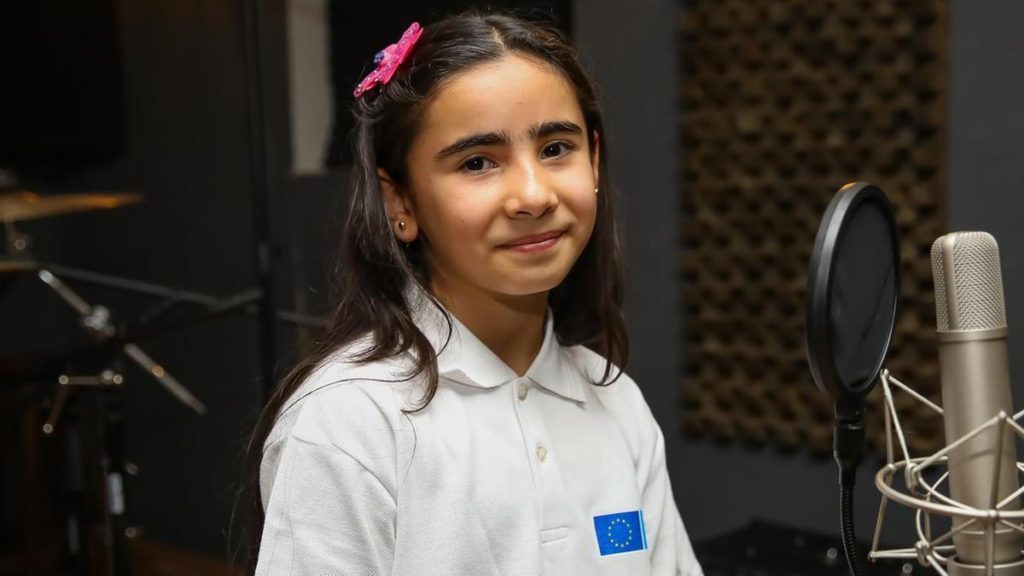By Muhammed Aladdin
March 15th, 2019 marked the eighth anniversary of the Syrian Civil War; a conflict that claimed the lives of millions and displaced millions more. It has exacerbated the refugee crisis in the world and claimed Syria, leaving only ruins and rubble. Amidst all the bleakness, Unicef is hoping to be a beacon of hope, even if only for a moment.
The global non-profit is renowned for providing aid and supporting children and mothers all across the world. In Syria, it plans to bring joy to the hearts of war-torn children, launching its first-ever children’s song album with aid from the European Union.

The Unicef Album called “11” features decades-old Arabic, childhood classics, revived and sung by children from Syria and neighboring Arab countries. Jad Rahbani, a Lebanese Musician and Actor, composed and rearranged many of these children’s songs from the ’70s, originally written by his father.
In 1976, the younger Rahbani recorded his first Arabic-language songs when he was a child with his brother Ghassan; he believes that music could help traumatized children find a path to heal.
“I remember the impact these songs had on me when I was a child and how much they helped me overcome the fear I felt during the war in Lebanon,” he said in a Unicef statement. “This is a very special project and I do hope that this album will bring joy to children and fill their hearts with positive energy.”

Children from Jordan, Syria, and Lebanon learned how to properly sing and record the tracks in a series of 11 workshops; hence, the album’s title, “11”. Around 300 children participated in the project, providing emotional support to children living with trauma.
“Syrian children have endured what no one should witness. Many are left with invisible scars,” said Geert Cappelaere, Unicef Regional Director for the Middle East and North Africa. “Psychosocial support, including through a project like 11 with music and art, has proven to help children cope with the shocks they’ve lived through and gradually reconnect with their childhoods.”
It has been announced that the album is to be delivered for free to schools, clubs, music academies, and recreation centers across the region. Unicef hopes to distribute one million copies of the album by the end of 2020.
Such support is integral to the healing process of children, and without it, these unhealed wounds would have severe consequences on their adult lives.



